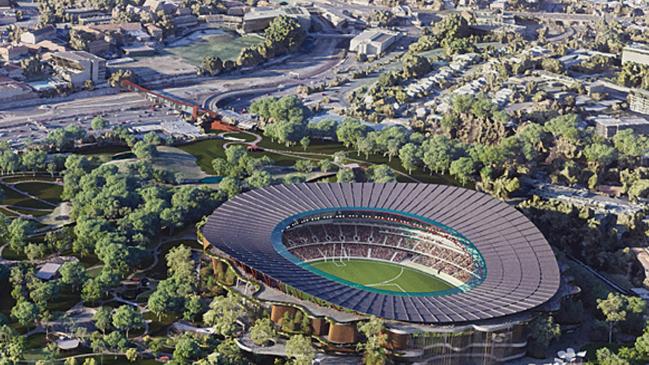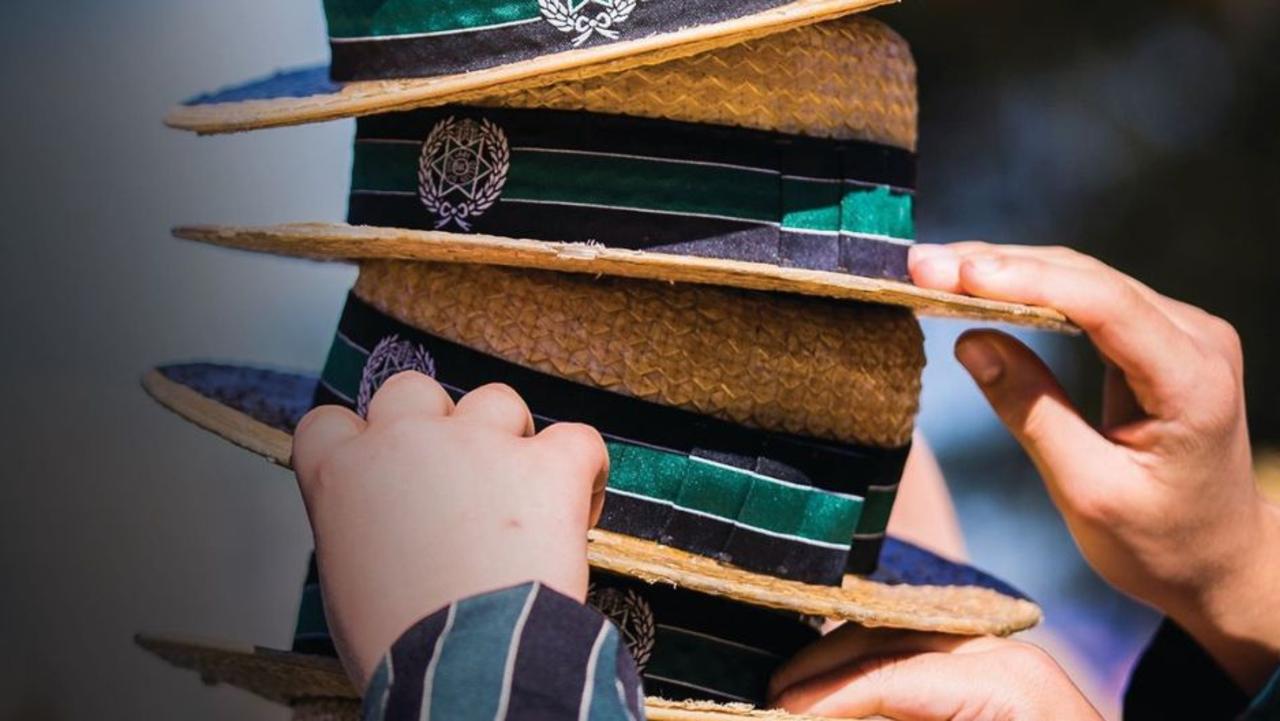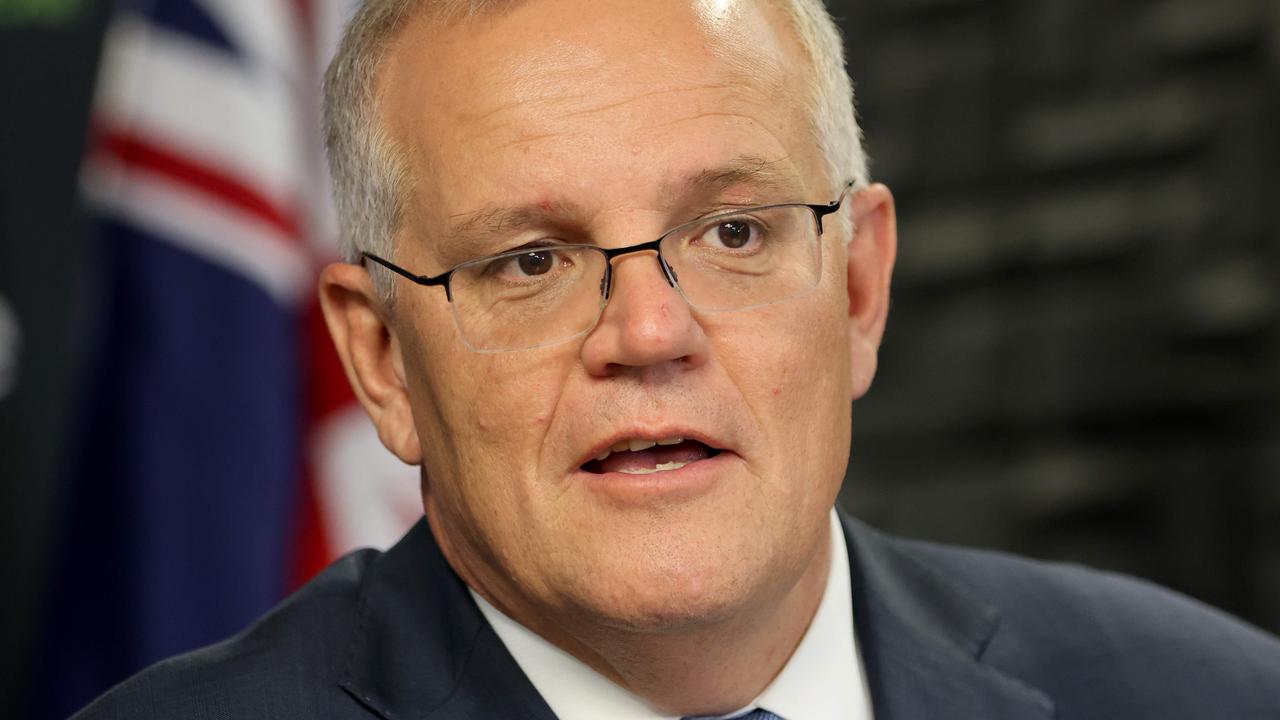Editorial: Compared with mega projects, 2032 Games are cheap
Queensland’s latest mega project blowout is a reminder that the cost of hosting the Olympics is comparatively quite insignificant, writes the editor.

Opinion
Don't miss out on the headlines from Opinion. Followed categories will be added to My News.
The rising – astronomical – cost of the CopperString project to link Mount Isa with the national electricity grid is a reminder that the cash currently set aside to build the venues needed for the 2032 Brisbane Olympic and Paralympic Games is actually quite insignificant comparatively.
While it sounds a lot, the $3.65bn in the Queensland state budget for its share of the $7.1bn total “funding envelope” for Games venues is just one-quarter of what state Treasurer and Energy Minister David Janetzki claims CopperString will now cost taxpayers: $14bn.
And yet it is that Games venues budget that has been the source of much more public conversation – and remarkable political concern – for the Crisafulli government. The cost of putting on the greatest show on earth is controversial; the much larger cost of delivering a new high-voltage electricity transmission line 1100km west from Townsville is not.
It shows how Games spending has become a totemic issue where the facts do not matter – it is instead more about the vibe.
Here is a fact. A 2021 analysis by KPMG concluded the Games alone would drive at least $8.1bn in social and economic benefits for the state – split into a $4.6bn boost in trade and tourism, and $3.5bn in social benefits for residents. It would also lead to the creation of 91,600 jobs over the next 20 years, according to the analysis. It is not a bad result from an outlay by the state of just $3.65bn (plus a federal government contribution to venues of $3.45bn).
Here is another fact. The amount budgeted to be spent on venues by the state is just 2.8 per cent of the $129.9bn the state government has in its capital budget for the next four years – and the venues cost is spread over seven years, so it accounts for even less; about 1.6 per cent of what is spent annually on current trends.
Let’s apply that to a household budget. If a family spends $500 a week on groceries, eating out and incidentals like coffees and so on, then 1.6 per cent of that annual total (of $26,000) is $416. Applied to the weekly budget, it is just $8.
And so, to the government, the entire cost of delivering the venues required for Queensland to host the world’s biggest event in 2032 is the equivalent of the impact that two cups of takeaway coffee a week has on a family budget – and that money is spent on something the community then benefits from into the future.
But let’s look at it another way. Let’s say that same household plans a kitchen renovation that will cost $40,000. The same proportion of that total cost as the government has allocated for venues is just $640 – and so, maybe, the equivalent in our kitchen renovation example of half of a new fancy coffee machine. It is not nothing. But it is also not much, at least when compared to the total amount being spent.
The analogies are stretched of course, because governments do not work like households. But the central point is that, while $3.65bn sounds like a lot in isolation, it is not actually much of what the Crisafulli government will spend on building things across the state over the next seven years. In fact, it is actually reasonably insignificant – at least in comparison to the controversy and the political concern about the impact of Games investment in the South East might have on the LNP’s electoral prospects in the regions.
And when you combine that fact with the other fact from KPMG about the benefits of the investment, then there is absolutely zero doubt the government should be all-in on delivering these venues – which it finally is, thank goodness.
ACADEMY CHANGES VITAL
With absolutely no disrespect to the hard-working lanyard-wearers of the Queensland public service, their culture is not one that is a perfect match for the rough and tumble world of high-performance sports.
That is why we advocated for – and have welcomed the progression of – plans to move the Queensland Academy of Sport out of the state’s Department of Sport and instead establish it as its own stand-alone agency reporting directly to the responsible minister.
As our talented young athletes start to count down to the 2032 Brisbane Olympic and Paralympic Games (2663 days to go!), their coaches and support teams – and in turn, their administrators – need the flexibility that a traditional public service model does not provide.
The current structure is not fit for purpose, particularly with a home Games on the horizon – a reality sheeted early last year with the sudden resignation of the globally renowned “Gold Medal Maker” Chelsea Warr, who had come home to Queensland after years of success overseas to lead the academy.
As we report, a parliamentary committee looking into the plan to decouple the academy has been warned not only of a “significant waste of talent” from the structure not being appropriate – but also “slow and cumbersome processes which deter talent” and make it impossible to attract and retain the “inspirational high performance leadership” vital to a successful home Olympics and Paralympics. We hope the committee is listening.
Responsibility for election comment is taken by Chris Jones, corner of Mayne Rd & Campbell St, Bowen Hills, Qld 4006. Printed and published by NEWSQUEENSLAND (ACN 009 661 778). Contact details here
More Coverage
Originally published as Editorial: Compared with mega projects, 2032 Games are cheap




